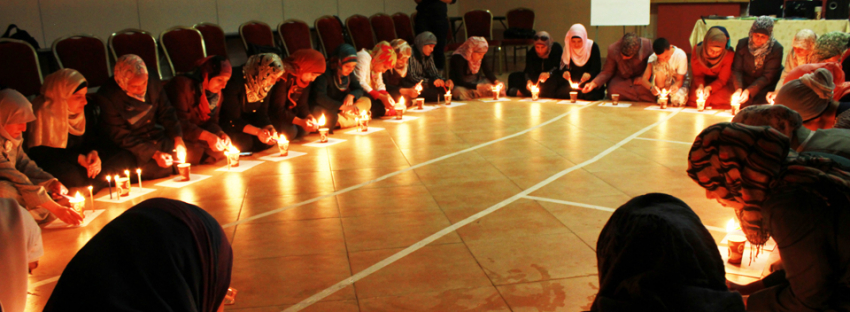
On 14 - 15 May, the Qattan Centre for Educational Research and Development organised a course in reflective writing for 31 kindergarten teachers.
The course is part of the three-year Comprehensive Development Project for Kindergartens (CDPK) which aims to improve the quality of early childhood education. The course focused on developing teachers’ understanding of the need to reflect on their teaching experiences, thus empowering them to act as de facto researchers and critics of their own preconceptions and pedagogical approaches.
Part of the course included a reflection on the participants’ experiences in the Teacher Exchange Programme, which completed its first stage for this year’s round on 12 April. The second stage of the programme will start this coming June. At the end of the reflective writing course, participants produced a booklet that summarised their thoughts and experiences of the Exchange Programme.
“The reflective process,” said researcher and course supervisor Malik Rimawi, “is meant to create an ongoing mechanism for self-development amongst kindergarten teachers, and we are always working to create opportunities to achieve this goal, through publishing the teachers’ reflections on their experiences, and by them sharing their self-evaluations of their work and profession.”
Rimawi added: “We, at Qattan, seek to build an understanding amongst kindergarten teachers that the process of reflection is not a formality or a routine; rather, teachers should see the reflective process as a way to truly express themselves and understand the importance of their work. This will allow teachers to be in control of their professional development and see the great value in their contributions.”
Speaking of her time on the course, kindergarten teacher Ruqayya Abu Soboh said: “This has been a great experience for us, and an opportunity to review projects we have initiated in our classrooms. By analysing strengths and weaknesses, we will be able to develop further projects with a critical eye.”
CDPK aims to enhance and improve the educational process for children aged 4-6, who live in Jerusalem and its suburbs, through developing the skills of teachers and administrators, improving the quality of services offered in kindergartens, developing infrastructures, and providing healthy and safe environments for children to learn across the district of Jerusalem.
